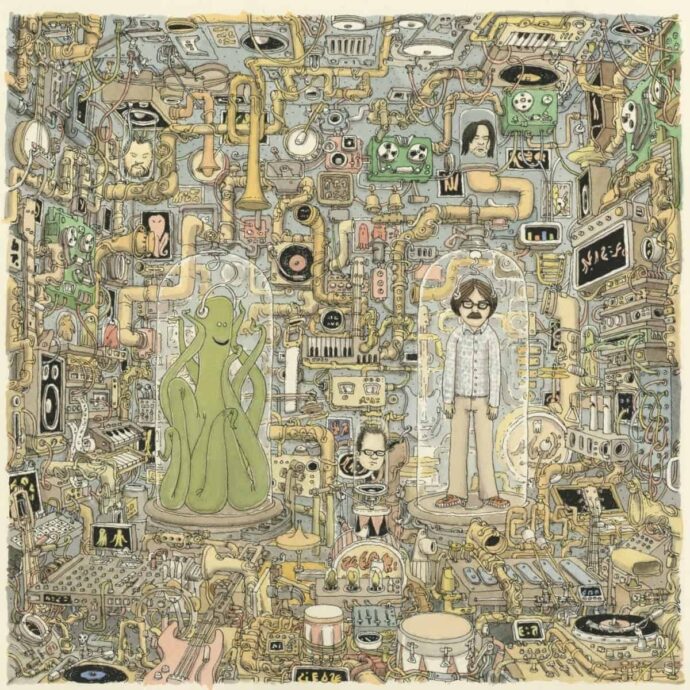Weezer’s OK Human makes a strong case for being the first rock record of the new year by a major American band to attempt to pull us collectively out of the darkness that was 2020 and into the (fingers crossed) light of 2021. At this point you might be saying, “Wait, Weezer? The band fronted by the sometimes mopey, often self-deprecating, woe-is-me bundle of neuroses who sang ‘Say It Ain’t So’?” Yes! This isn’t to say the new record is imbued from front to back in sunshine and rainbows, far from it. But it is to say the empathetic, optimistic moments on Weezer’s “quarantine album” far outweigh the downtrodden, weepy ones.
Every track on OK Human features a gorgeous 38-piece orchestra recorded on analog equipment at Abbey Road Studios. Rivers Cuomo has been responsible for some of the most memorable alternative rock songs of the last thirty years. With OK Human, Cuomo takes his talent for catchy hooks and instantly relatable lyrics into the baroque pop genre with stunning success. Rivers’ ability to craftily drop a universally identifiable lyric is on display within the first three songs.
“I don’t know what’s wrong with me!” Cuomo cries out at the end of each chorus to OK Human’s lead-off single, “All My Favorite Songs”, a deceptively cheery number that has the singer listing his contradictions. During the bridge to the staccato string-laden “Aloo Gobi”, Rivers repeats the line “You are not alone.” Finally, on his tribute to getting lost in an audiobook (yes, you read that correctly), Cuomo punctuates every chorus with, “You think I care? I just don’t care!” These subtle lyrical earworms may seem inconsequential to the tracks’ initial appeal but just like any unforgettable pop song, the devil is in the details.
OK Human’s second quarter begins with a turn toward the solemn with the sober-yet-majestic “Numbers”. Here, Cuomo uses metrics as an analogy to feelings of inadequacy. The song is followed by another ballad, “Playing My Piano”, wherein Rivers compares the intimacy of forgoing real-world responsibilities and instead tickling the ivories by himself to living in a womb. The trifecta is concluded with “Mirror Image”, a song that cleverly works as a finale for the two preceding tracks, the outro including four different lyrical endings, as if Rivers loved them all too much to omit even one.
Things pick up tempo-wise on side two with “Screens”, an obvious song that takes aim at our obsession with online culture. “Bird with a Broken Wing” finds Rivers returning to familiar lyrical ground as he wallows for a bit. “I’m just a bird with a broken wing, and I still have a song to sing, don’t feel sad for me, I’m right where I wanna be,” Cuomo sings sorrowfully during the song’s chorus. “Dead Roses” is OK Humans’ most ill-fitting moment. The track’s tonal pessimism and (literally) lyrical blackness, and bleakness, feel out of place in the context of the album as a whole. Still, if anything, the moment sets things up nicely for the soaring, upbeat penultimate song, “Here Comes the Rain”.
OK Human is concluded with “La Brea Tar Pits”, a pretty ender that offers cautious hope amidst a piano minuet solo and an almost sarcastically jaunty, theatrical denouement in the song’s final seconds. Weezer’s fourteenth studio album is not only a showcase for Rivers Cuomo’s piano playing and songwriting prowess but also his band’s best collection of original material since 2016’s self-titled (White Album). For a group whose second decade has been nothing short of polarizing in terms of respectability, OK Human is a bright portent of acceptance and embracement for Weezer moving into the 2020s.
Rating: 8.0/10

